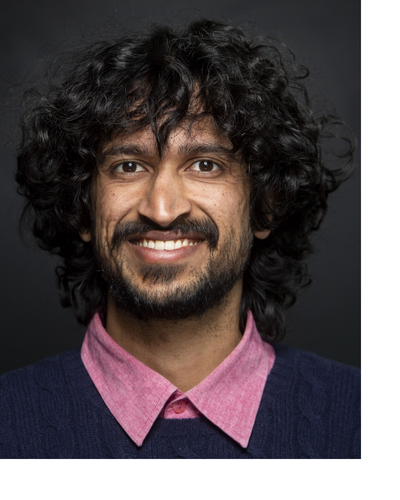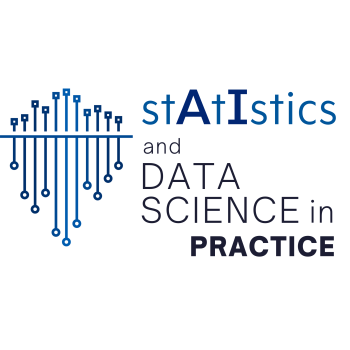Please Note: this event has already taken place. The news story and recording can be accessed here: NISS Webinar Explores Sequential Causal Inference and the Role of Experimental Design in AI | National Institute of Statistical Sciences
Overview
Speaker
Aaditya Ramdas, Associate Professor, Department of Statistics and Data Science & Department of Machine Learning, Carnegie Mellon University
Moderator
Abstract
About the Speaker
 Aaditya Ramdas is an Associate Professor at Carnegie Mellon University in the Departments of Statistics and Machine Learning. His work has been recognized by the Presidential Early Career Award (PECASE), the highest distinction bestowed by the US government to young scientists, a Kavli fellowship from the NAS, a Sloan fellowship in Mathematics, a CAREER award from the NSF, the inaugural COPSS Emerging Leader Award, the Bernoulli new researcher award and the IMS Peter Hall Early Career Prize, and faculty research awards from Adobe and Google. He was recently elected Fellow of the IMS, was awarded Statistician of the Year by the ASA's Pittsburgh Chapter, and will be the program chair of AISTATS 2026. See Profile
Aaditya Ramdas is an Associate Professor at Carnegie Mellon University in the Departments of Statistics and Machine Learning. His work has been recognized by the Presidential Early Career Award (PECASE), the highest distinction bestowed by the US government to young scientists, a Kavli fellowship from the NAS, a Sloan fellowship in Mathematics, a CAREER award from the NSF, the inaugural COPSS Emerging Leader Award, the Bernoulli new researcher award and the IMS Peter Hall Early Career Prize, and faculty research awards from Adobe and Google. He was recently elected Fellow of the IMS, was awarded Statistician of the Year by the ASA's Pittsburgh Chapter, and will be the program chair of AISTATS 2026. See Profile
About the Moderator
 Dr. Will Wei Sun is an Associate Professor of Quantitative Methods at Purdue University's Mitchell E. Daniels, Jr. School of Business, with a courtesy appointment in the Department of Statistics. He serves as the PhD Coordinator for Quantitative Methods and is recognized for his expertise in statistical foundations of large language models, trustworthy reinforcement learning, tensor data analysis. Dr. Sun's research has been supported by notable grants from the National Science Foundation and the Office of Naval Research. Dr. Sun earned his Ph.D. in Statistics from Purdue University in 2015. Before that, he was a research scientist at Yahoo Labs and an assistant professor at Miami Business School. Dr. Sun is on the editorial board for Annals of Applied Statistics, Statistical Analysis and Data Mining. See Profile
Dr. Will Wei Sun is an Associate Professor of Quantitative Methods at Purdue University's Mitchell E. Daniels, Jr. School of Business, with a courtesy appointment in the Department of Statistics. He serves as the PhD Coordinator for Quantitative Methods and is recognized for his expertise in statistical foundations of large language models, trustworthy reinforcement learning, tensor data analysis. Dr. Sun's research has been supported by notable grants from the National Science Foundation and the Office of Naval Research. Dr. Sun earned his Ph.D. in Statistics from Purdue University in 2015. Before that, he was a research scientist at Yahoo Labs and an assistant professor at Miami Business School. Dr. Sun is on the editorial board for Annals of Applied Statistics, Statistical Analysis and Data Mining. See Profile
About AI, StAtIstics and Data Science in Practice
The NISS AI, Statistics and Data Science in Practice is a monthly event series will bring together leading experts from industry and academia to discuss the latest advances and practical applications in AI, data science, and statistics. Each session will feature a keynote presentation on cutting-edge topics, where attendees can engage with speakers on the challenges and opportunities in applying these technologies in real-world scenarios. This series is intended for professionals, researchers, and students interested in the intersection of AI, data science, and statistics, offering insights into how these fields are shaping various industries. The series is designed to provide participants with exposure to and understanding of how modern data analytic methods are being applied in real-world scenarios across various industries, offering both theoretical insights, practical examples, and discussion of issues.
Featured Topics:
- Veridical Data Science - Speaker: Bin Yu, October 15,2024
- Random Forests: Why they Work and Why that’s a Problem - Speaker: Lucas Mentch, November 19, 2024
- Causal AI in Business Practices - Speakers: Victor Lo, and Victor Chen, January 24, 2025
- Large Language Models: Transforming AI Architectures and Operational Paradigms - Speaker: Frank Wei, February 18, 2025
- Machine Learning for Airborne Biological Hazard Detection - Speaker: Jared Schuetter, March 11, 2025
- Trustworthy AI in Weather, Climate, and Coastal Oceanography - Speaker: Dr. Amy McGovern, May 13, 2025
- Sequential Causal Inference in Experimental or Observational Settings - Speaker: Aaditya Ramdas, August 26, 2025
- Reinventing Operations Management’s Research and Practice with Data Science - Speaker: David Simchi-Levi, September 23, 2025
- ML and Bayesian geospatial approaches for prediction of opioid overdose deaths - Speaker: Soledad Fernández, November 18, 2025
Event Type
- NISS Hosted
Website
Location
Policy

